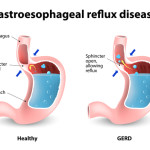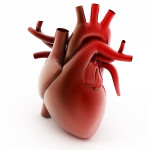Non-Steroidal Anti-Inflammatory pain medications (NSAIDS) Non-Steroidal Anti-Inflammatory pain medications (NSAIDS) such as ibuprofen (Motrin), naproxen (Aleve), Etodolac, celecoxib (Celebrex) are all effective medications for mild to moderate pain. However, all these medications also put increased stress on your kidneys. In PAH, the kidneys are already under stress from … [Read more...]
Beating Heartburn with Pulmonary Hypertension
Heartburn or gastro-esophageal reflux disease (GERD) is a very common symptom for patients with pulmonary hypertension. Patients may experience chest tightness, burning, pressure or even cough and hoarseness. Often symptoms are worse after eating certain foods or lying down at night. What Causes Heartburn in Pulmonary Hypertension Patients? A quick review of the anatomy of … [Read more...]
Pulmonary Embolism and Pulmonary Hypertension
A recent reader of PulmonaryHypertensionRN.com wrote in with an excellent question that I suspect is on many patients minds. Pulmonary embolism (a blood clot in your lung) is a very common medical problem. Occasionally this can lead to pulmonary hypertension in a few percent of patients. The larger the blood clot the greater the likelihood that if you had an echocardiogram … [Read more...]
3 Benefits of Pulmonary Hypertension Support Groups
A pulmonary hypertension support group is a group of patients with PAH coming together to learn about and support patients with pulmonary arterial hypertension. The idea of attending a support group can seem scary and intimidating, Potential participants worry about what types of people will attend and if they will be required to speak during the meeting. Patients that can … [Read more...]
5 Benefits of Swimming
Patients with pulmonary arterial hypertension often have a difficult time finding an exercise routine that works for them. With restrictions to how much weight they can lift, body position (recommended to avoid bending with head below waist), and avoiding unnecessary sun exposure; exercise options seem very limited. Many patients also rely on awkward and sometimes heavy oxygen … [Read more...]





